The best reps don’t just work harder—they sell smarter. The top 30% outperform peers by up to 4×, thanks to better insights from sales analytics software. High performers turn CRM data into intelligence; average teams still guess.
The market is booming: $15B in 2025, projected to reach $40B by 2033 (~12% CAGR). With 92% of sales professionals saying analytics unlocks new opportunities, the edge now comes from smarter platforms, not bigger pipelines.
High-performing teams don’t just collect data—they apply it. The right tools help managers visualize pipelines, compare past vs. present, and spot trends that drive revenue growth. Instead of debating opinions, leaders zero in on metrics like deal size, win rate, and sales cycle—and tie actions directly to outcomes.
“We moved from lagging dashboards to real-time pipeline views; productivity jumped in weeks.”
—VP Sales Ops, Mid-Market SaaS (G2, 2025)
This guide reviews 12 leading tools—features, pricing, and real user feedback—so sales leaders can choose with confidence.
Sales Analytics Tools: Comparative Overview
This matrix compares tools by price-to-value, team fit, and strengths—helping leaders shortlist before deeper evaluation.
What is Sales Analytics Software and Why It Matters
Sales analytics software converts sales data into decisions—tracking performance, spotting trends, and producing more accurate forecasts. It’s evolved from static CRM reports to AI-powered conversation intelligence & sales coaching.
Core capabilities
- Pipeline analysis (conversion bottlenecks, velocity)
- Performance tracking (rep activity, quota, average deal size)
- Forecasting (AI + historical sales data)
- Customer behavior (engagement, churn risk, expansion)
Adoption is near-universal: 91% of firms with 10+ employees use CRM. In 2026 the leap is AI — data-driven and AI-enabled sales orgs are far more likely to exceed growth and earnings targets, with analytics tied to faster growth and +15–25% higher earnings.
Bottom line: sales analytics solutions translate historical sales data into actionable insights that predict future sales trends. Whether you’re improving forecast accuracy, coaching sales reps, or allocating budget, analytics turns raw numbers into prioritized actions. Teams that standardize on a single analytics layer gain complete visibility across the sales pipeline, customer interactions, and coaching sales reps to make better calls, faster.
Types of Sales Analytics Platforms
Whether you’re running a 5-rep startup or a 500-seat enterprise, the right solution falls into one of four categories.
CRM-Integrated Analytics
Combines CRM and analytics to track pipeline, score leads, and forecast revenue.
Conversation Intelligence
Analyzes sales calls, emails, and meetings to coach reps and flag deal risks.
“Sharing top-rep snippets shortened the SDR ramp by a month.” —r/SaaS_Sales (Reddit)
Predictive Analytics
Scores deals, identifies risks, and improves forecasting accuracy with predictive models.
Stat context: 86% of executives using predictive marketing ≥2 years reported increased ROI.
BI & Data Visualization
Aggregates data across systems into dashboards and models for deeper insights.
Top Sales Analytics Software — Detailed Comparison
A: Conversation Intelligence Specialists
Claap — Fast-Adoption for Coaching and Deal/Pipeline Insights

Best for: Mid-market teams prioritizing fast onboarding and powerful coaching insights.
Ecosystem: HubSpot, Salesforce, Pipedrive, Attio, Slack, Notion.
Shines at: AI call summaries, deal & pipeline insights, CRM automations, objection tags.
Watchouts: Newer vs. Gong for global enterprise. From $30/user/month.
“The conversation intelligence features give us visibility we never had before on our pipeline: spotting recurring objections, tracking competitor mentions, and seeing what messaging resonates with each persona” —Sales Manager (G2)
#2 Gong — Enterprise Revenue Intelligence
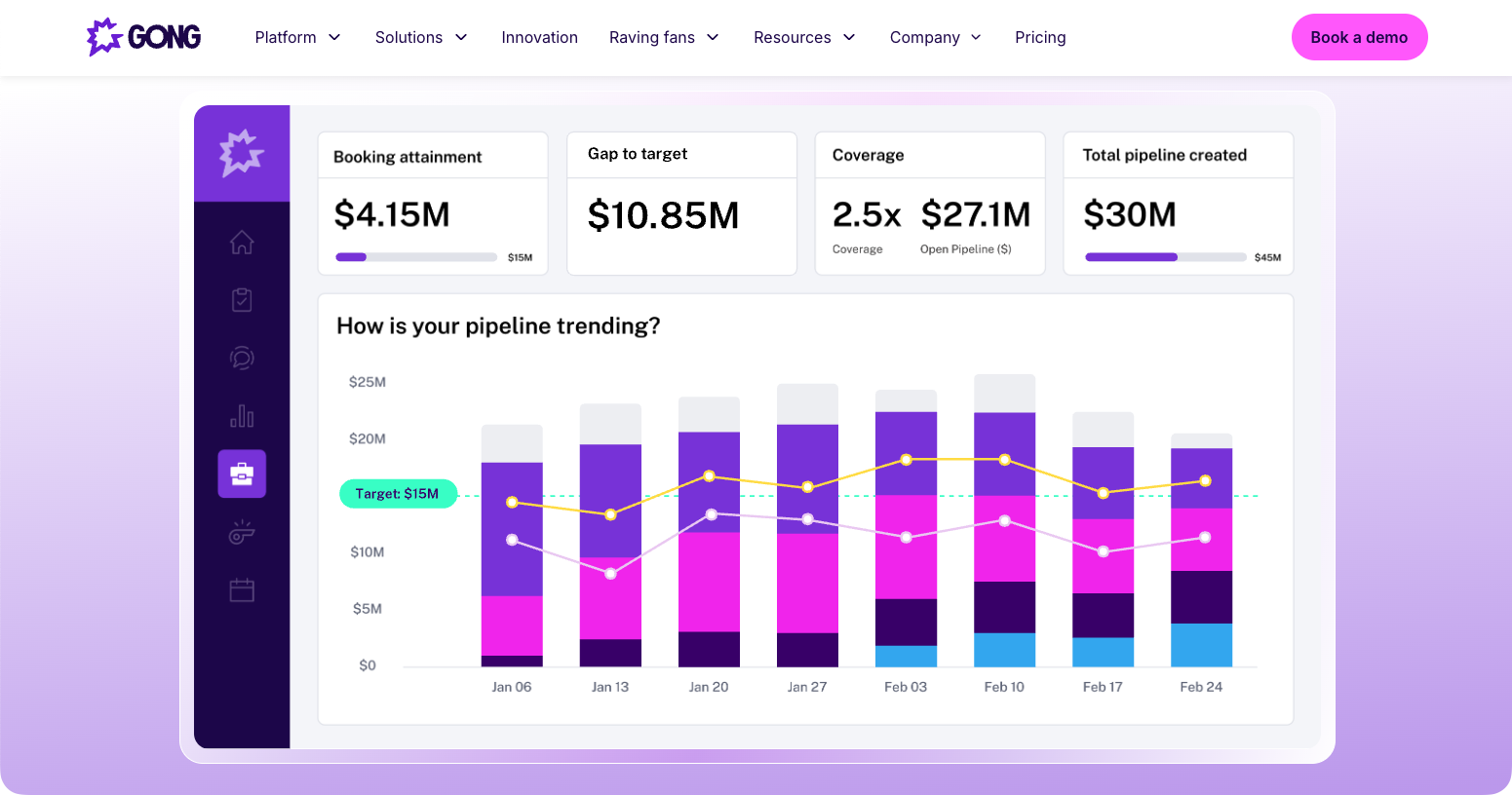
Best for: Large, complex teams needing deep deal visibility.
Ecosystem: Salesforce, HubSpot, Outreach, Salesloft.
Shines at: Rich call analytics, deal risk alerts, coaching dashboards.
Watchouts: $100+/user/month; steeper rollout for SMBs.
“Unmatched deal visibility—risks surface before EOQ.” —VP Sales, Enterprise SaaS (G2)
#3 Modjo — Conversation Intelligence with EU-Grade Compliance

Best for: EU SMB/mid-market; GDPR-first orgs.
Ecosystem: Salesforce, HubSpot, Pipedrive.
Shines at: Auto capture & transcription, coaching libraries.
Watchouts: Narrower integrations vs. US leaders free ex. From €39/user/month.
“CI insights without legal headaches.” —Sales Manager (G2)
#4 Attention.tech — Conversation Analytics on a Budget
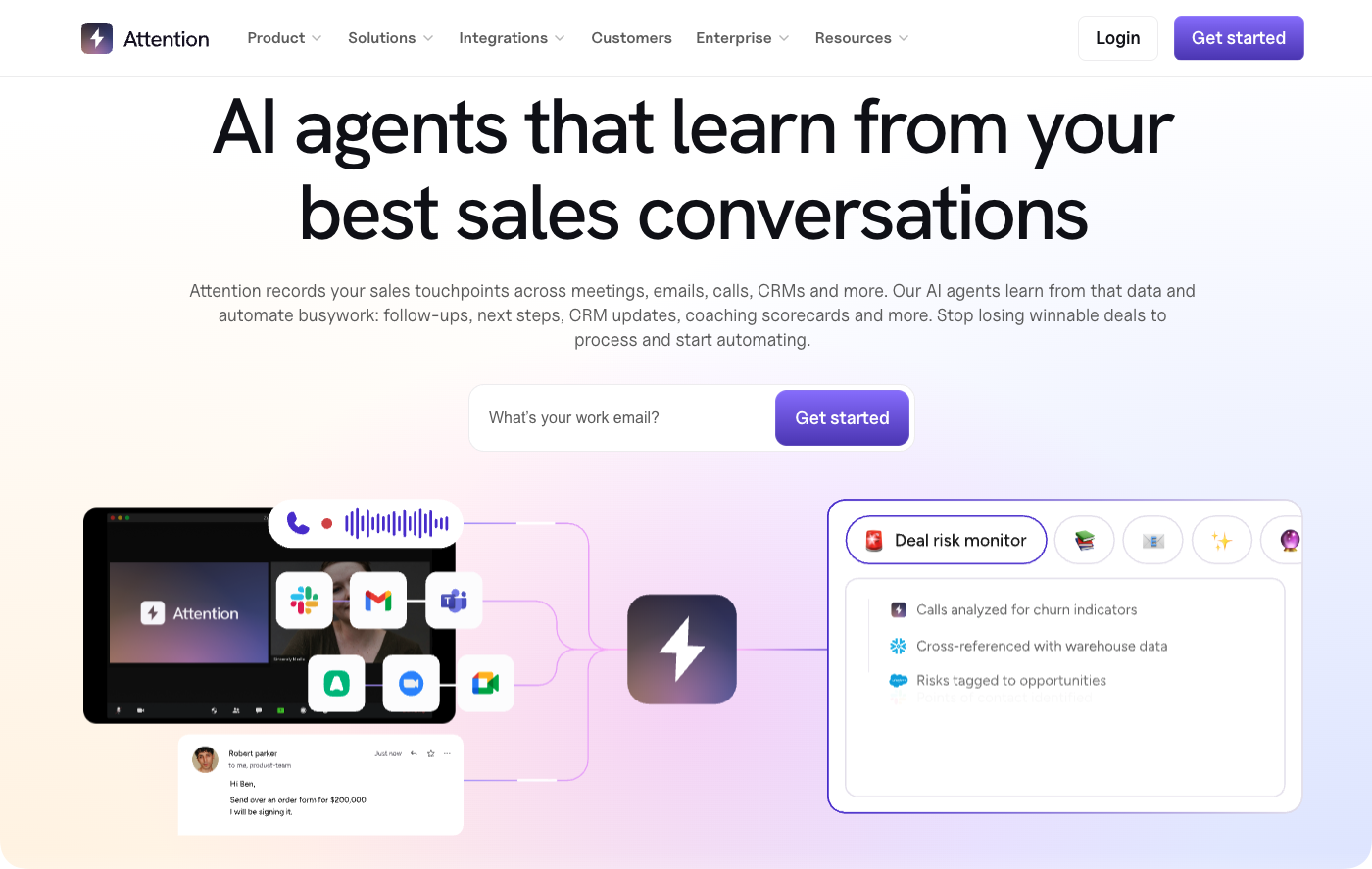
Best for: Startups/SMB needing 80% of CI value at low cost.
Ecosystem: HubSpot, (basic) Salesforce.
Shines at: AI call scoring, objection flags.
Watchouts: Lighter integrations. ~$50/user/month.
“80% of insights for a fraction of the price.” —Founder team (Reddit)
B: Enterprise-Grade Comprehensive Solutions
#5 Salesforce Sales Cloud Einstein — CRM + AI Depth

Best for: Enterprises demanding customizable analytics.
Ecosystem: Vast; Tableau, Slack, MuleSoft native.
Shines at: Opportunity scoring, pipeline health, automated forecasting.
Watchouts: $150–$300+/user/month; learning curve.
“Einstein flagged ‘safe’ deals—saved six-figure losses.” —Global VP Sales Ops (G2)
#6 HubSpot Sales Hub — Simplicity Meets Scale
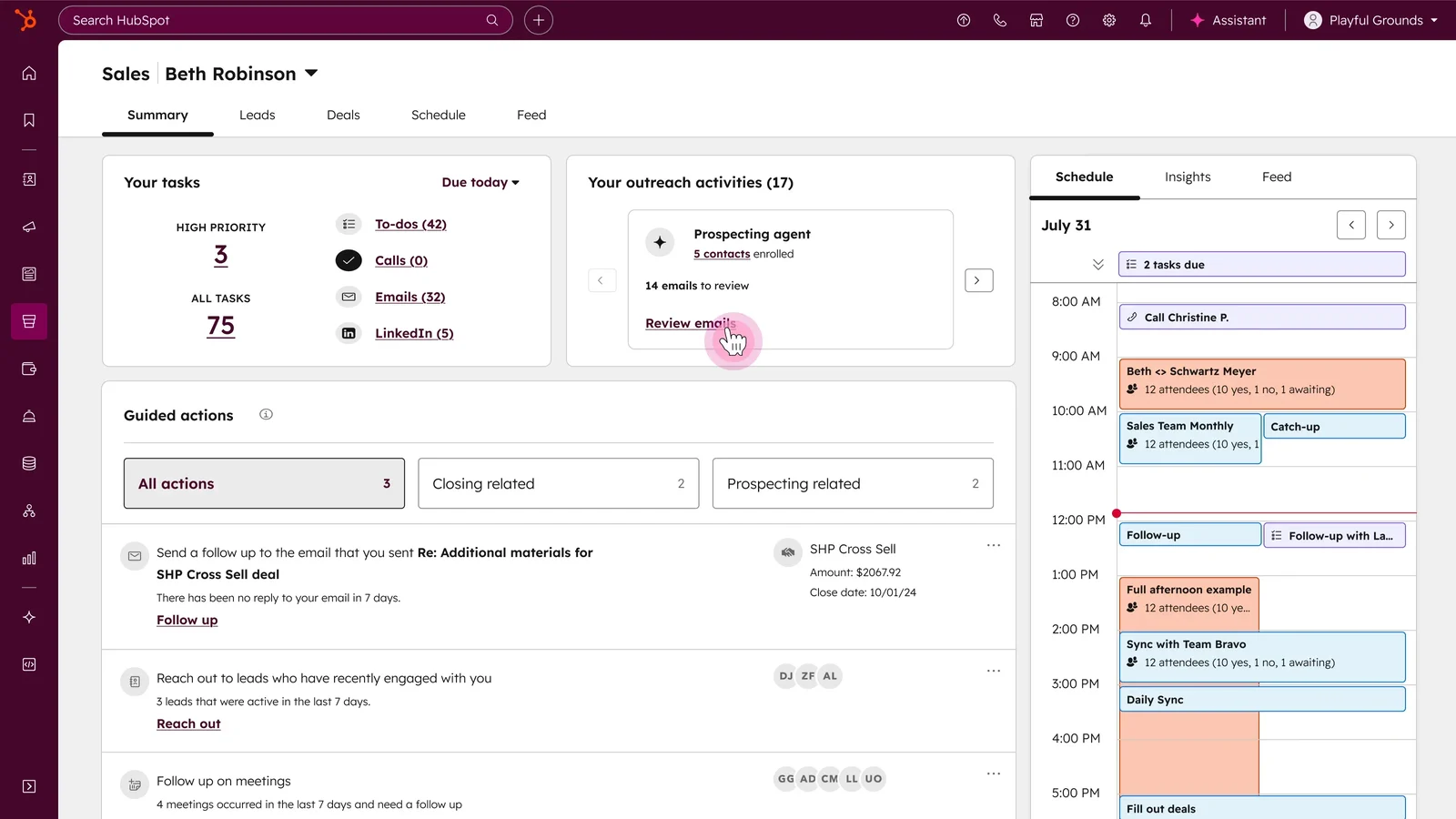
Best for: Scaleups/mid-market seeking faster time-to-value.
Ecosystem: Deep across HubSpot; Gmail/Outlook/Zoom/Slack.
Shines at: Pipeline dashboards, AI lead scoring, revenue attribution.
Watchouts: Advanced AI on higher tiers (~$100/user/month).
“Salesforce-level insight without the pain.” —Head of RevOps (G2)
#7 Microsoft Dynamics 365 — CRM with Native BI
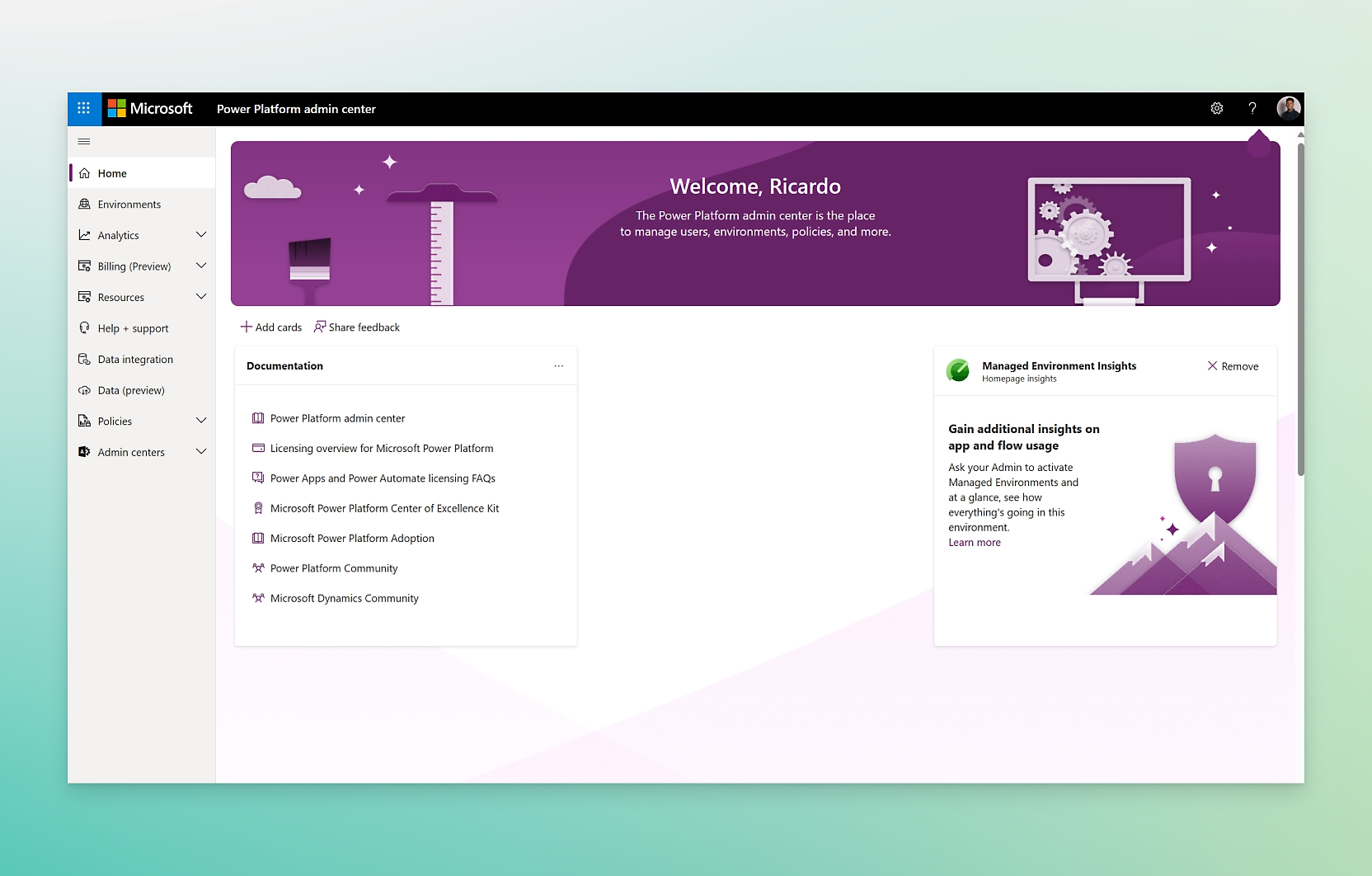
Best for: Microsoft-standardized enterprises.
Ecosystem: Power BI, Azure ML, Outlook, Teams.
Shines at: Role-based dashboards, Power BI visualizations, AI forecasts.
Watchouts: UI learning curve; $65–$162/user/month.
“Reporting powerhouse; onboarding takes patience.” —Director Enablement (G2)
C: Mid-Market Specialized Platforms
#8 Pipedrive — Visual Pipeline Analytics for SMB Growth
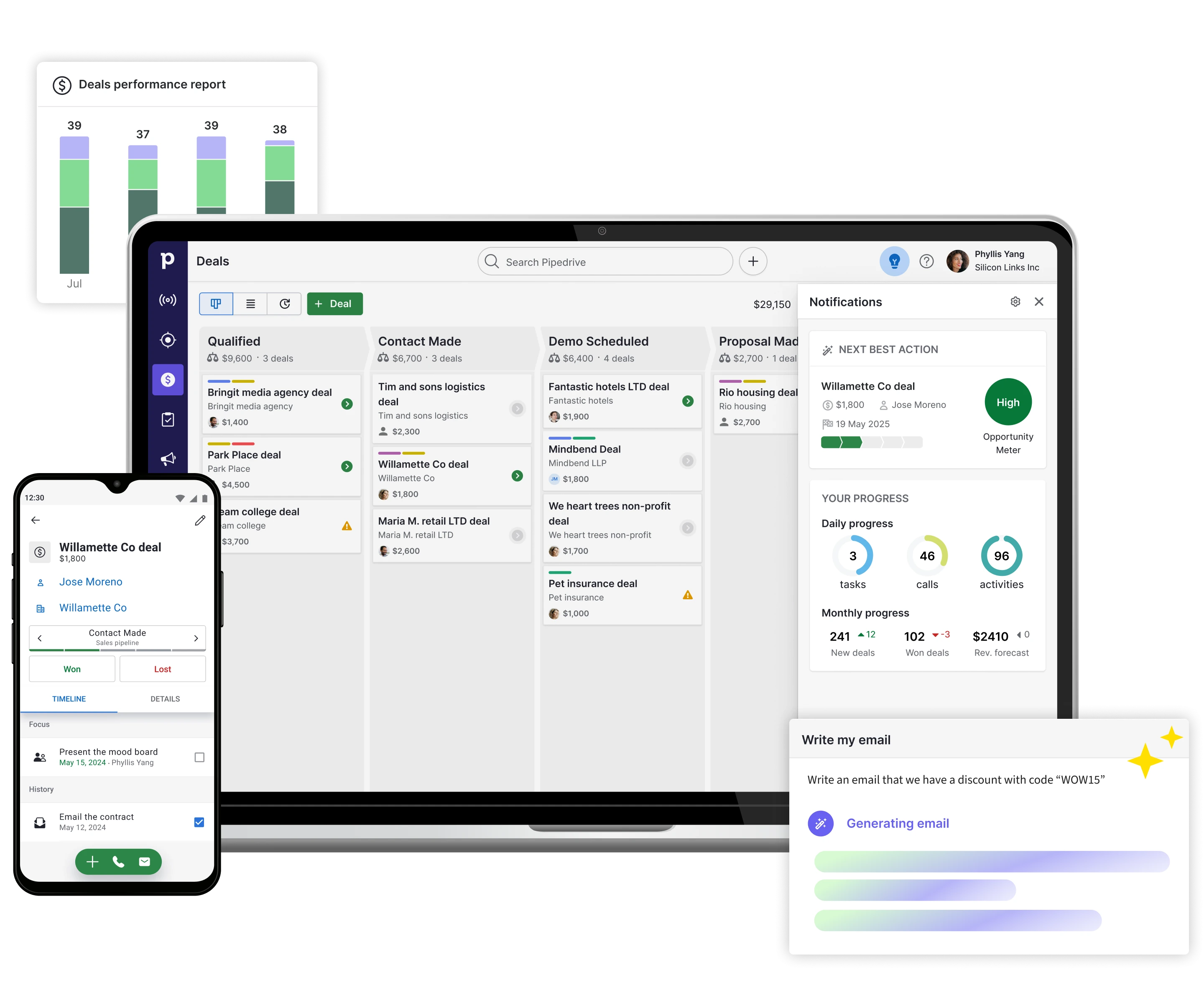
Best for: Teams scaling off spreadsheets.
Ecosystem: Google Workspace, Slack, Zoom, Zapier, Mailchimp.
Shines at: Drag-and-drop pipeline, rep performance, simple forecasting.
Watchouts: Limited predictive AI. ~$49/user/month.
“Pipeline reviews now take minutes.” —Sales Manager (G2)
#9 Attio — Modern, Flexible CRM
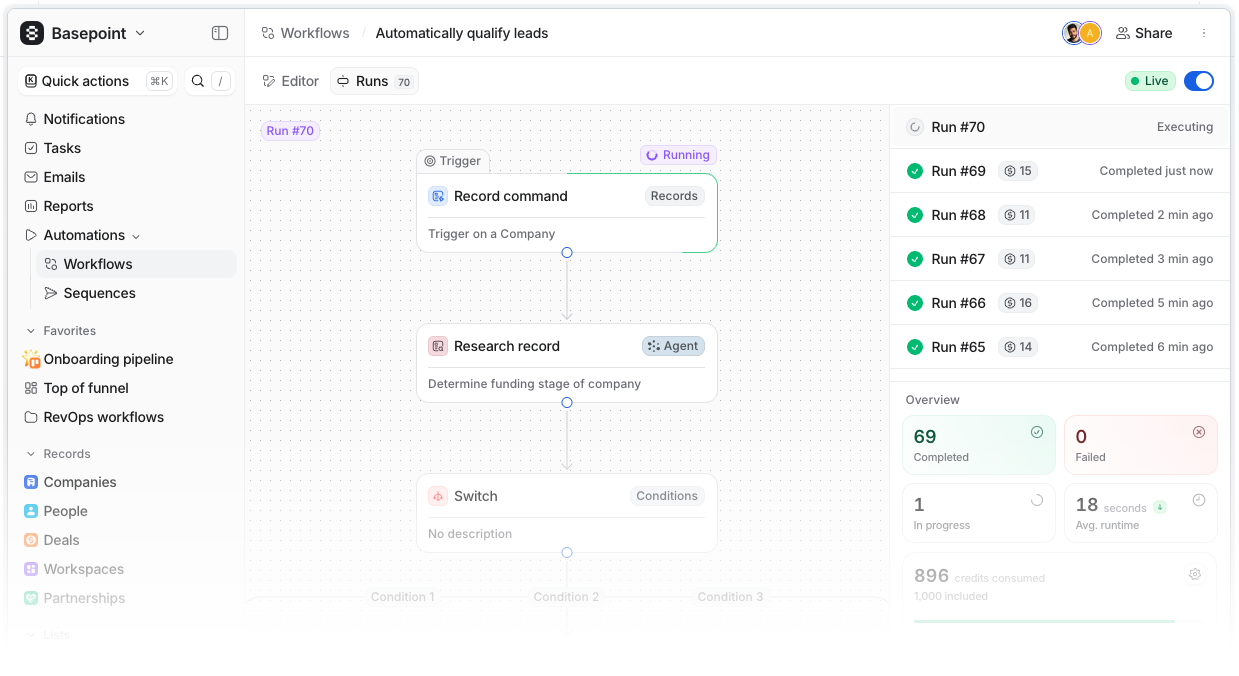
Best for: Startups; custom workflows.
Ecosystem: Gmail, Slack, Zapier, Notion, APIs.
Shines at: Custom views, relationship intelligence, activity unification.
Watchouts: Analytics still maturing. ~$29/user/month.
#10 Zoho CRM — Customization on a Budget

Best for: SMBs needing breadth at low cost.
Ecosystem: Google Workspace, O365, Slack, Mailchimp, Zoho suite.
Shines at: Omnichannel tracking, workflows, KPI dashboards.
Watchouts: Dated UI; polish varies. ~$57/user/month.
“Forecasting at a fraction of the cost.” —Founder, SMB eCom (G2)
D: Budget-Friendly Options for Small Businesses
#11 BIGContacts — Lightweight CRM & Basics
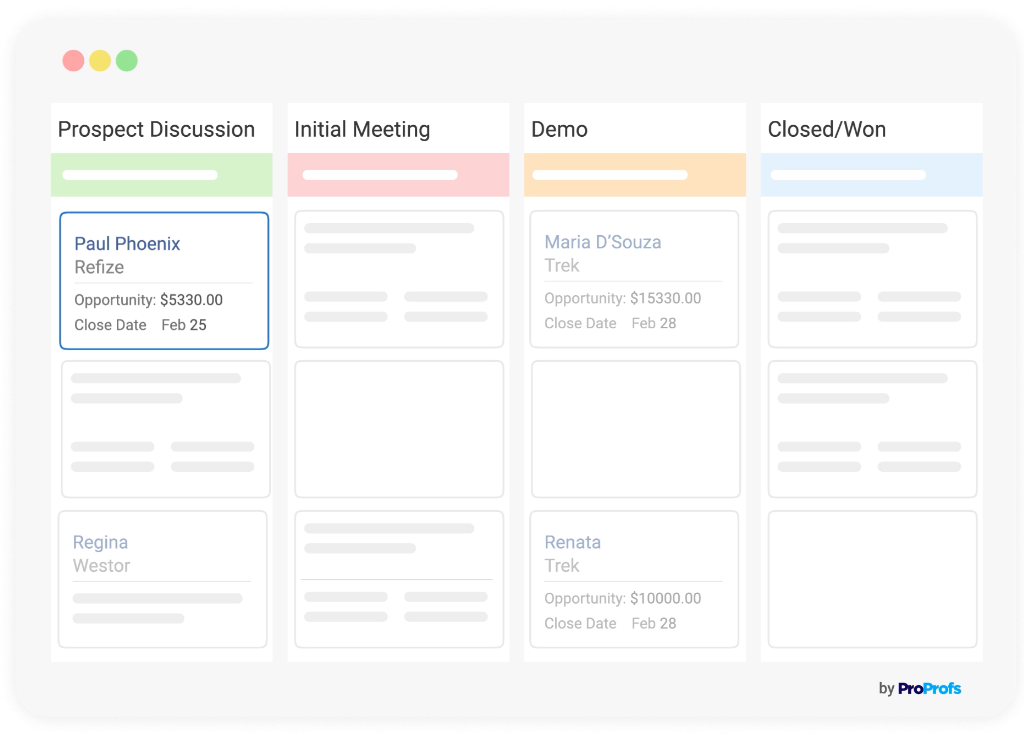
Best for: Micro-teams starting from zero.
Ecosystem: Gmail, Outlook, Mailchimp, Zapier.
Shines at: Contact/activity tracking, simple pipeline reporting.
Watchouts: Limited analytics depth. Free (100 contacts); $9.99/user/month paid.
“Fast pipeline visibility for a 3-rep team.” —Owner (G2)
#12 Agile CRM — All-in-One for SMBs

Best for: Small teams wanting sales + marketing + service in one.
Ecosystem: Google Workspace, O365, Twilio, Stripe, Zapier.
Shines at: Deal tracking, campaign analytics, basic support dashboards.
Watchouts: Less depth vs. specialists. $8.99/user/month.
Who Should Use Sales Analytics Software?
If your team tracks more than a handful of deals or runs multi-stage opportunities, you’ll benefit.
- Sales managers get consistent key sales metrics
- RevOps gets data integrity; founders get more accurate sales forecasts
- and sales reps see where to focus to hit sales targets.
The right analytics software removes guesswork and supports data-driven decision making as you scale
Essential Features to Evaluate in Sales Analytics Software
These five capabilities separate “pretty dashboards” from software that actually drives revenue.
1) Integration & Connectivity
Integration is the #1 feature. Without seamless data flow, dashboards become silos. Non-negotiables: native CRM + email/calendar, marketing automation platform (MAP), and an open API for custom syncs.
Strong connectors ensure pipeline management, activity tracking, and customer relationship management data stay in lockstep across systems—no more exporting to spreadsheets.
Stat: Poor integration is a top adoption killer; 70% of top-performing sales teams use mobile sales apps tightly integrated with their CRM.
2) Advanced Analytics & AI
Prioritize predictive models that analyze deal probability, surface actionable insights, and use activity, persona match, and stage velocity to predict future revenue.
Stat: 65% of sales orgs use CRM with gen-AI; companies using AI in CRM are 83% more likely to exceed sales goals.
3) UX & Accessibility
Even smart analytics fails if reps won’t use it. Prioritize role-based views (SDRs, AEs, managers, execs) and mobile access.
Stat: Mobile CRM users are 150% more likely to exceed targets.
4) Reporting & Visualization
Favor live dashboards and scheduled sends; enable BI hand-off (Tableau/Power BI) for exec packs.
Great tools make it simple to visualize sales data in funnels, heatmaps, and cohort views. Stakeholders can pivot from relevant sales metrics to underlying activities in a click—no analyst required.
5) Scalability & Growth Accommodation
Check license ramp rules, API rate limits, and data retention at higher volumes.
Evaluate how each platform handles data import/export, API limits, and marketing automation or calendar/email sync. You want complete visibility across all your sales data, not one more silo. Bonus points for business intelligence capabilities that feed Tableau or Power BI without manual CSV work.
Stat: 87% of businesses now use cloud-based CRM (up from 12% in 2008).
The Proven ROI of Sales Analytics Software
Benchmarks below are aggregated across analyst studies and vendor-agnostic research.
- $8.71 returned per $1 invested
- +14% sales productivity; −12% marketing overhead
- Up to +29% sales, +34% productivity, +42% forecast accuracy
- Up to +300% conversion lift with full adoption
Where ROI shows up first: cleaner pipeline management (clear stage exit criteria), sales automation that gives reps time back, and tighter sales forecasts that align finance and sales. Many teams justify software spend with one saved deal per quarter or a single headcount’s worth of automation.
Why it matters: reliable forecasts, visible pipeline health, and clearer rep paths to quota.
Implementation Best Practices for Maximum ROI
Implementation is where the ROI actually happens. The planning you do before rollout, the way you onboard users, and the cadence of measurement after go-live determine whether analytics moves the needle — or collects dust.
1) Pre-Implementation Planning
A short, focused data audit and clear success metrics stop projects stalling later. Map which systems will feed the analytics layer, decide ownership of each dataset, and define the specific forecast, conversion, and activity KPIs that count. Teams that do this upfront reduce integration surprises and shorten time-to-value.
2) Change Management & User Adoption
Technology isn’t what changes behaviour — the way you launch it does. Secure executive sponsorship, run role-specific onboarding (SDRs, AEs, managers), and bake analytics into daily workflows (pipeline reviews, coaching 1:1s). Incentives and quick, visible wins — not long manuals — drive sustained use.
3) Data Quality & Governance
Governance isn’t bureaucracy — it’s hygiene that protects outcomes. Agree standards for field values, schedule regular cleansing, and enforce retention and privacy policies. When data is trusted, models and alerts become reliable decision tools rather than sources of skepticism.
Stat: Poor data quality cuts effectiveness 20–40%.
4) Continuous Optimization & Measurement
Ship the MVP, then iterate. Track feature usage, measure KPI lift, collect qualitative feedback from reps, and prune unused reports. Quarterly ROI checkpoints force course corrections early and keep the stack aligned to revenue priorities.
KPIs to Track in Sales Analytics
1) Pipeline & Opportunity Metrics
Pipeline value/velocity, stage conversion, avg deal size, sales cycle.
Stat: Average win rate ≈ 21% (≈1 in 5 deals).
2) Team Performance
Activities/rep, response time, win rate, quota attainment.
Stat: 37% of salespeople credit CRM with improved pipeline visibility.
Also track customer acquisition costs (CAC) alongside conversion rates by source. When you analyze sales data across channels, you’ll spot the most relevant sales metrics for your motion—e.g., SDR response time for inbound, sales rep performance by stage for outbound, or upsell/cross-sell rates for expansion.
Pair KPI trends with historical data to isolate seasonal effects from true performance shifts.
3) Forecast Accuracy Measurements
Forecast vs. actual, commit/best/pipeline categories; AI vs. rep estimates.
Stat: Up to +42% forecast accuracy with analytics.
4) Customer Engagement & Retention
CLV, upsell/cross-sell, churn risk, NRR.
Stat: 91% of sellers upsell; ~21% of revenue from up/cross-sell.
Industry Trends Shaping Sales Analytics Software in 2026
The vendors who win in the next five years won’t be those that add the most features, but those that turn analytics into everyday sales muscle. Three shifts separate novelty from advantage: AI embedded in workflow, conversation intelligence that produces actions (not notes), and compliance-first architectures that earn procurement trust.
- AI & ML: From flashy features to workflow muscle
AI is table stakes — the differentiator is how it’s used. The fastest-growing teams are not the ones with the fanciest models; they’re the ones that bake predictions and next-best actions into reps’ workflows so that AI nudges are seen and acted upon in real time (pipeline reviews, call coaching, email follow-ups). The question to ask vendors: can their AI be turned into a persistent, low-friction signal in everyday sales motions — or is it a dashboard metric that lives in a separate tab?
“AI forecasts built trust from reps to leadership.” —Head of Sales (G2)
- Conversation & sentiment: from transcripts to triage
Raw transcripts are worthless; actionable conversation intelligence is not. The real value is contextual signals that prioritize coaching, flag deal risk, and trigger concrete actions (e.g., escalate an account, schedule a competitive playbook, or auto-send a follow-up). CI succeeds when it links insights to operational plays — otherwise call notes become “stuff in a drawer.”
What to expect: tools that cluster objections, surface competitor mentions by account, and integrate snippets directly into playbooks will outcompete those that only give passive transcripts.
“Live competitor flag turned a potential loss into a save.” —r/SaaS_Sales (Reddit)
- Privacy-first data practices: compliance as a growth enabler
Privacy and security are no longer checkbox hurdles — they’re procurement filters. Buyers will reject platforms that can’t demonstrate clear data lineage, first-party controls, and jurisdictional compliance. Vendors that market compliance as a product capability (data portability, role-based masking, on-prem or EU-only options) will win larger, regulated deals faster.
“Legal signed off once GDPR controls were proven.” —Sales Ops Manager, EU Fintech (G2)
Conclusion: Future-Proofing Your Sales Analytics Strategy
Buying a platform is buying into an ecosystem. Future-proofing isn’t feature checklists — it’s about optionality: portability, an API-first architecture, and a vendor roadmap that prioritizes integrations and explainable AI. Prioritize platforms that guarantee clean exports, clear SLAs, and a commitment to embed analytics into the daily workflow. That way you avoid migration pain and keep control over your data and strategy as the market evolves.
Quick buyer checklist: API-first, exportable data, clear AI roadmap, role-based privacy controls, and an active integration marketplace. If a vendor can’t tick those boxes, you’re buying a short-term speed boost, not a strategic asset.
Stat: 92% say analytics unlocks new opportunities; high-growth firms are 3× more likely to prioritize analytics.
“Portability and APIs were non-negotiable—no more migration nightmares.” — Head of RevOps, Mid-Market SaaS (G2)
Ready to evaluate? Use the FAQ below to match features to your motion and budget.
FAQs
How much does sales analytics software cost?
Pricing ranges from free tiers (e.g., BIGContacts) to $300+/user/month (Salesforce Einstein). SMB-friendly options like Agile CRM start at $8.99/user/month. On average, every $1 invested in analytics returns about $8.71.
What’s the ROI of implementing sales analytics software?
Companies typically see +29% in sales, +34% in productivity, and +42% in forecast accuracy. Many achieve payback within the first year of implementation.
What’s the difference between CRM and sales analytics software?
A CRM manages customer relationships and sales activities. Sales analytics software interprets data across systems to uncover insights. Some platforms, like Salesforce and HubSpot, integrate both functions.
Do sales analytics tools replace my CRM?
No. A CRM handles customer relationship management and activity logging; sales analytics software sits on top to analyze sales data, visualize key metrics, and drive data-driven decision making. Many platforms bundle both.
Do I need AI-powered sales analytics?
Yes if you’re scaling beyond basic reporting. AI-enabled orgs are 83% more likely to exceed goals. Uses: forecasting, deal scoring, next-best actions.
Which software is best for small businesses?
BIGContacts ($9.99/user), Agile CRM ($8.99/user), Zoho CRM (free tier)—core analytics with upgrade paths. HubSpot, Attio, and Pipedrive are also easy to set up and onboard reps with, enabling teams to scale sales activity.
What integrations are essential?
CRM, email/calendar, marketing automation, Slack/Teams—for complete visibility and fewer silos. Notion can be a valuable integration when used as your company’s documentation system.
Can analytics improve forecast accuracy?
Yes—up to +42% by replacing subjective rep estimates with data-driven models.
What is conversation intelligence?
Conversation intelligence is software that records, transcribes, and analyzes sales interactions (calls, emails, and meetings). It helps teams surface buyer sentiment, track objections, highlight keywords and quotes, and identify effective talk tracks. Leading platforms include Claap, Gong, and Modjo.
How do I get my team to use analytics?
Drive adoption with executive sponsorship, role-based training, and integration into daily workflows. Reinforce usage through gamification and celebrate quick wins to build momentum.
Sales analytics vs. sales intelligence?
- Sales analytics: Focuses on internal data (pipeline health, rep performance, forecasting).
- Sales intelligence: Leverages external data (market signals, buyer intent, competitive insights).
- Together: They provide a complete view to guide strategy and execution.
FAQ

![12 Best Sales Analytics Tools [2026 Guide]](https://cdn.prod.website-files.com/6262a9705cabe0833039d5c8/68f3ee8755717d935f8936c0_Sales-analytics-tools.jpg)

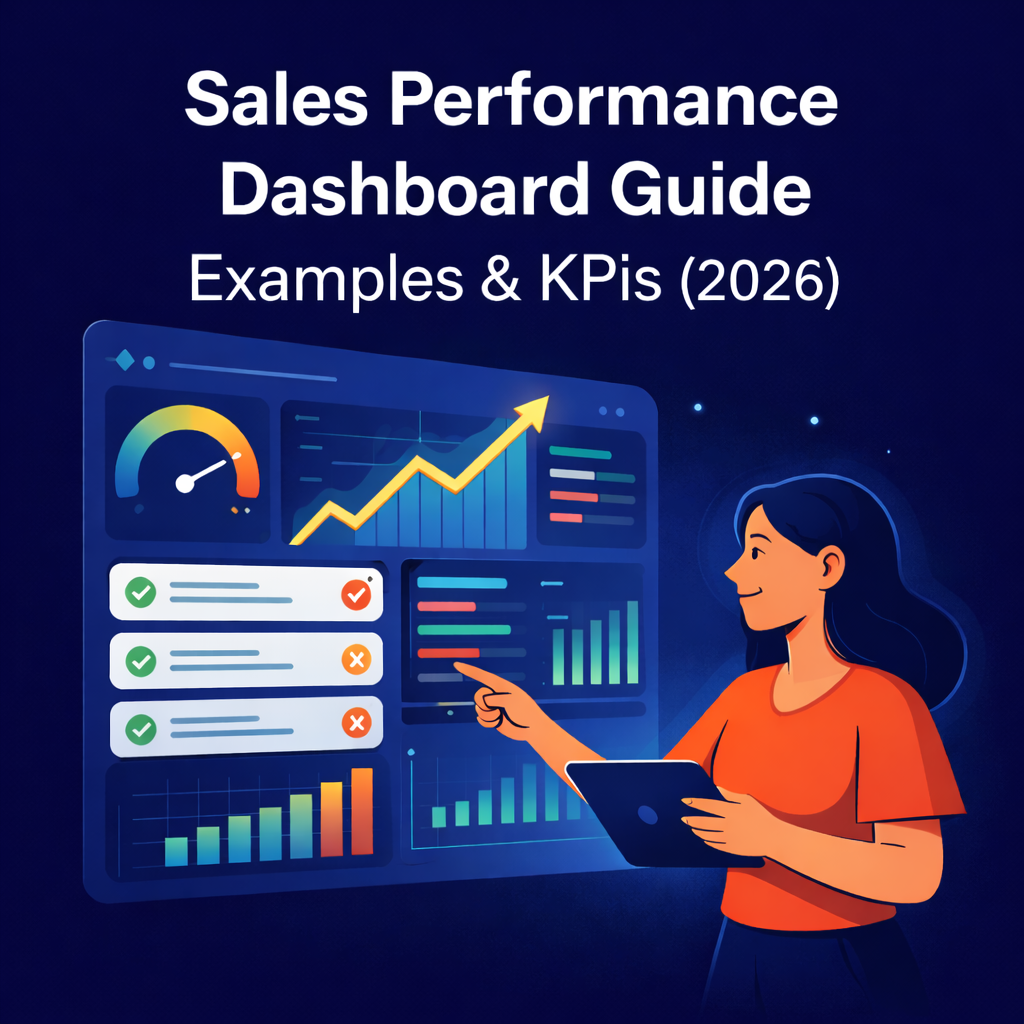
![Sales Performance Analysis: Metrics, Methods & Tools [2026]](https://cdn.prod.website-files.com/6262a9705cabe0833039d5c8/696a357f918e3c09d0e33141_Sales%20Perf%20Analysis%20v2.png)
